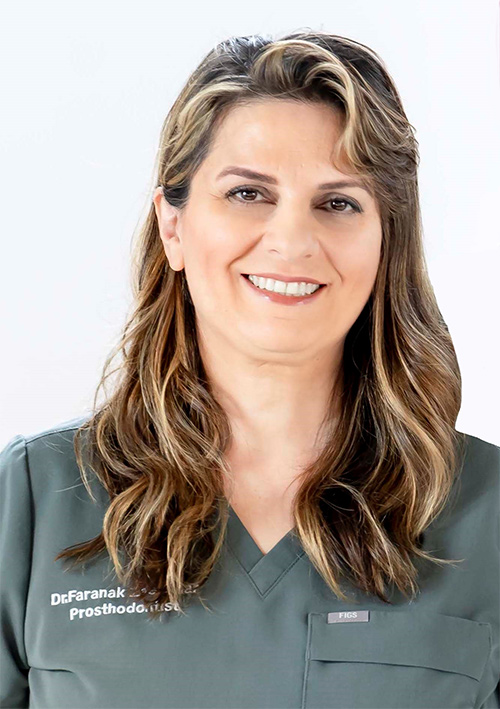What is the Interdisciplinary Approach?
There is nothing better than having a team of specialists in house. The specialists are getting together to plan the case predictably. That way everyone is on the same page and understand the final goal of the treatment.
The Prosthodontist should be the leader and quarterback in executing the treatment plan.
Prosthodontists are expert in oral problems diagnosis and treatment planning and they have a clear vision of the desired outcome of the treatment and they sequence the necessary steps to achieve the ultimate goal.

 Prosthodontists are certified specialists in implant, cosmetic, and reconstructive dentistry.
Prosthodontists are certified specialists in implant, cosmetic, and reconstructive dentistry.
Prosthodontists are experts in the restoration and replacement of teeth – they make smiles look beautiful and function the way they should. They regularly lead teams of general dentists, specialists. Prosthodontists can restore oral function through the placement of restorations (fillings, crown/bridges) or prostheses (dentures, crowns, implants, etc.). Extensive training and experience give prosthodontists a unique understanding of restoring the dynamics of a smile and healthy mouth with the creation of tooth prostheses. Becoming a prosthodontist requires an additional three years of specialty training after obtaining a DMD (Doctor of Dental Medicine) or DDS (Doctor of Dental Surgery) degree. This specialized training must be completed at an Canadian accredited prosthodontic education program. This is where prosthodontists are highly trained in state-of-the-art techniques and procedures for treating multiple, diverse, and complex dental conditions. They will also learn how to restore the optimum function and aesthetics of a smile.
Periodontists are dentists who specialize in the diagnosis and treatment of periodontal (gum) disease. They have had extensive training with three additional years of study after dental school. As specialists they devote their time, energy and skill to helping patients care for their gums. A periodontist is one of the eight dental specialists recognized by the American Dental Association.
The Endodontist examines, diagnoses and treats diseases and destructive processes, including injuries and abnormalities of dental pulps and periapical tissues of the teeth.
Endodontists examine patients and interpret radiographs and pulp tests to determine pulp vitality and periapical tissue condition. They evaluate their findings and prescribe a method of treatment to prevent loss of teeth.



